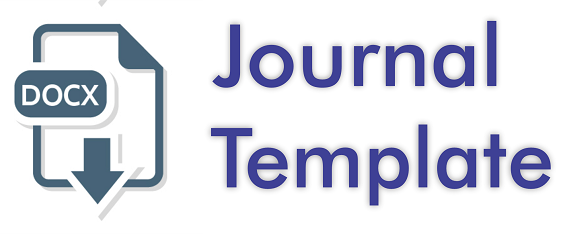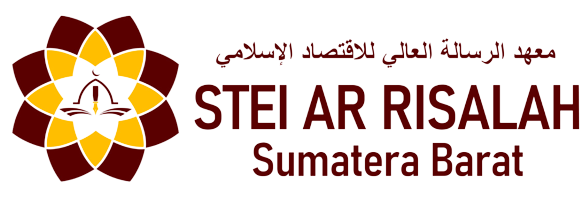Analisis Pemasaran Produk Simpanan Dan Pembiayaan Pada BMT Insan Madani
Keywords:
Product, Marketing, Savings, Financing, BMTAbstract
In BMT Insan Madani there are business fields, one of which consists of collecting funds and distributing funds, namely Savings and Financing. These savings products consist of savings products, such as (wadiah savings, education savings, hajj/umrah savings, holiday savings, and qurban savings), and then financing products, such as (murabahah, mudharabah, musyarakah, and IMBT). The purpose of this study is to determine the implementation of marketing savings and financing products. This study uses a qualitative method, namely by collecting data by conducting interviews. The results of this study are that BMT is present as a place to collect funds for people who need a place to store funds in the future, both for education, hajj/umrah, and even holidays. In addition, BMT is also a place to provide funds and acts as a capital manager for people who lack funds in building their businesses. The initial procedure carried out by BMT Insan Madani in marketing its products, they conduct a location survey, this is done to find information about the needs and problems that exist in the community, after the location survey is carried out, the BMT will collect funds or distribute funds with savings products and provisions available at BMT Insan Madani, according to the needs of the community.
Downloads
References
Achta Pratama, F. (2022). Analisis Peran Pendidikan Vokasi Dalam Pengembangan Industri Halal di Indonesia. Risalah Iqtisadiyah: Journal of Sharia Economics, 1(1), 1–7. https://doi.org/10.59107/ri.v1i1.22
Afrida, N., & Musyafa’ah, N. L. (2018). Pembiayaan Musyarakah di Bait Al-Mal Wa At-Tamwil (BMT) An-Nur Rewwin Waru Sidoarjo. Maliyah : Jurnal Hukum Bisnis Islam, 8(2), 278–300. https://doi.org/10.15642/maliyah.2018.8.2.130-152
Amani, A., & Khoirunisa, L. (2023). Akad Wadiah sebagai Salah Satu Penghimpun Dana dalam Bank Syariah. Jurnal Karimah Tauhid, 2(4), 1198–1203.
Basri, J., Dewi, A. K., & Iswahyudi, G. (2022). Pembiayaan Murabahah pada Perbankan Syariah dalam Perspektif Hukum di Indonesia. AL-MANHAJ: Jurnal Hukum Dan Pranata Sosial Islam, 4(2), 375–380. https://doi.org/10.37680/almanhaj.v4i2.1802
Bundo, M., & Pratama, F. A. (2024). Analysis of Sharia-Based Hotels on Sustainable Tourism in West Sumatera Indonesia. Journal of Islamic Economics and Finance Studies, 5(1), 173–191. https://doi.org/10.47700/jiefes.v5i1.7378
Dasopan, N. (2023). Bmt Sebagai Lembaga Keuangan Syariah. Islamic Circle, 3(2), 63–71. https://doi.org/10.56874/islamiccircle.v3i2.1138
Ismail, R. D., & Adnan, M. F. (2020). Peran Dinas Pariwisata Provinsi Sumatera Barat Dalam Mewujudkan Wisata Halal. Jurnal Manajemen Dan Ilmu Administrasi Publik (JMIAP), 2(2), 98–107. https://doi.org/10.24036/jmiap.v2i2.142
Lestari, M. A., & Azizah, S. N. (2023). Analisis Kepatuhan Syariah Dalam Produk Simpanan Dan Pembiayaan Pada Bmt Khonsa. Jurnal Ekonomi Islam, 14(1), 2579–6453.
Mahbub. (2016). Pengaruh Pembiayaan Mudharabah Terhadap Pendapatan BMT UGT Sidogiri Capem Songgon Kabupaten Banyuwangi. Jurnal Hukum Islam, Ekonomi Dan Bisnis, 2(2), 63–80.
Maulida Jam’ah, & Ahmad Amin Dalimunthe. (2022). Analisis Produk Tabungan Wadiah Dan Mudharabah Di Bsi Kcp Medan Pulo Brayan. Jurnal Publikasi Ekonomi Dan Akuntansi, 2(3), 257–268. https://doi.org/10.51903/jupea.v2i3.354
Munif, N. A. (2017). Analisis Akad Ijarah Muntahiyabittamlik Dalam Perspektif Hukum Islam Dan Hukum Positif Di Indonesia. An-Nisbah: Jurnal Ekonomi Syariah, 3(2), 255–276. https://doi.org/10.21274/an.2017.3.2.255-276
Noviantoro, K. M., & Zurohman, A. (2020). Prospek pariwisata syariah (Halal Tourism): Sebuah tantangan di era revolusi industri 4.0. Equilibrium: Jurnal Ekonomi Syariah, 8(2), 275–296.
Pratama, F. A. (2022). Relevansi Pengetahuan Dengan Pencegahan Covid-19 di Masyarakat. Jurnal Ekologi, Masyarakat Dan Sains, 3(1), 21–26. https://doi.org/10.55448/ems.v3i1.41
Pratama, F. A., & Effendi, H. (2021). E-Learning Bebasis Wordpress Sebagai Alternatif Media Pembelajaran. 4(3), 466–475.
Pratama, F. A., Wahyudi, M., Eka Putra, D., Muslim, M., & Effendi, H. (2023). Analysis of the Role of Vocational Education for the Halal Tourism Development in Indonesia. Edumaspul: Jurnal Pendidikan, 7(2), 6053–6068. https://doi.org/10.33487/edumaspul.v7i2.7585
Pratama, F. A., Yufa, N. A., & Abimayu, M. F. (2025). PENGEMBANGAN E-LEARNING BERBASIS SPIRITUAL UNTUK PELATIHAN DIGITAL MARKETING BAGI. Jurnal Dinamika Ekonomi Syariah, 12(1), 210–219.
Rodoni, A., Raisa Medina, A., & Yaman, B. (2020). Efficiency And Stability Of Islamic Banking In ASEAN. Al-Iqtishad: Jurnal Ilmu Ekonomi Syariah, 12(1), 63–76.
Sugiyono. (2014). Metode Penelitian Kuantitatif Kualitatif Dan R&d. Alfabeta.
Wahyudi, M., Fitri, R., Pratama, F. A., & Febrianto, R. (2024). The Sound Changes in the Minangkabau Language Spoken by Padangâ€TM s Ethnic Chinese. Journal of Innovation in Educational and Cultural Research, 5(1), 164–169. https://doi.org/10.46843/jiecr.v5i1.1106
Wahyuni, H., Rilianti, F. Y., Afiatika, A., Isyrahlia, Pratama, F. A., & M. Wahyudi. (2024). The Influence Of Social Media On Waqf Funding In BPW Ar Risalah. RISALAH IQTISADIYAH: Journal of Sharia Economics, 3(1), 18–25. http://jurnal.steiarrisalah.ac.id/index.php/stei/article/view/67%0Ahttp://jurnal.steiarrisalah.ac.id/index.php/stei/article/download/67/24
Downloads
Published
Issue
Section
License
Copyright (c) 2024 RISALAH IQTISADIYAH: Journal of Sharia Economics

This work is licensed under a Creative Commons Attribution 4.0 International License.
License
The non-commercial use of the article will be governed by the Creative Commons Attribution license as currently displayed on http://creativecommons.org/licenses/by/4.0/. This licence allows the user to distribute, remix, tweak, and build upon the licensed work, including for commercial purposes, as long as the original author is credited.
Author’s Warranties
The author warrants that the article is original, written by stated author/s, has not been published before, contains no unlawful statements, does not infringe the rights of others, is subject to copyright that is vested exclusively in the author and free of any third party rights, and that any necessary written permissions to quote from other sources have been obtained by the author/s.
User Rights
Under the Creative Commons Attribution license, the author(s) and users are free to share (copy, distribute and transmit the contribution).
Rights of Authors
Authors retain the following rights:
- copyright, and other proprietary rights relating to the article, such as patent rights,
- the right to use the substance of the article in future own works, including lectures and books,
- the right to reproduce the article for own purposes, provided the copies are not offered for sale,
- the right to self-archive the article.
Co-Authorship
If the article was prepared jointly with other authors, the signatory of this form warrants that he/she has been authorized by all co-authors to sign this agreement on their behalf, and agrees to inform his/her co-authors of the terms of this agreement.
Termination
This agreement can be terminated by the author or RISALAH IQTISADIYAH: JOURNAL OF SHARIA ECONOMICS upon two months’ notice where the other party has materially breached this agreement and failed to remedy such breach within a month of being given the terminating party’s notice requesting such breach to be remedied. No breach or violation of this agreement will cause this agreement or any license granted in it to terminate automatically or affect the definition of RISALAH IQTISADIYAH: JOURNAL OF SHARIA ECONOMICS.
Royalties
This agreement entitles the author to no royalties or other fees. To such extent as legally permissible, the author waives his or her right to collect royalties relative to the article in respect of any use of the article by RISALAH IQTISADIYAH: JOURNAL OF SHARIA ECONOMICS or its sublicensee.
Miscellaneous
RISALAH IQTISADIYAH: JOURNAL OF SHARIA ECONOMICS will publish the article (or have it published) in the Journal, if the article’s editorial process is successfully completed and RISALAH IQTISADIYAH: JOURNAL OF SHARIA ECONOMICS or its sublicensee has become obligated to have the article published. RISALAH IQTISADIYAH: JOURNAL OF SHARIA ECONOMICS may conform the article to a style of punctuation, spelling, capitalization and usage that it deems appropriate. The author acknowledges that the article may be published so that it will be publicly accessible and such access will be free of charge for the readers. RISALAH IQTISADIYAH: JOURNAL OF SHARIA ECONOMICS will be allowed to sublicense the rights that are licensed to it under this agreement.


.png)
.png)






